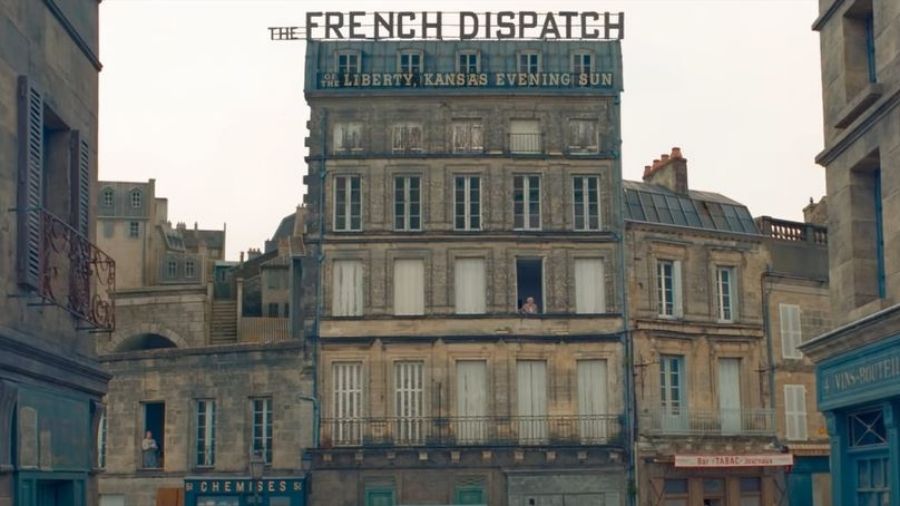‘The Lost City of Z’ doesn’t have the nerve to follow its hero’s convictions
Apr 21, 2017, 9:08 AM

"The Lost City of Z" recounts the intriguing true story of Percy Fawcett. (Aidan Monaghan via AP)
(Aidan Monaghan via AP)
“The Lost City of Z” recounts the intriguing true story of Percy Fawcett, an early 20th-century British explorer who became convinced a great, ancient civilization once flourished in the Amazonian jungles.
More movie reviews from Tom Tangney
His is an amazing tale of extreme hardship, constant danger, and enormous risk-taking, both physical and mental, mixed with iron determination, wide-eyed wonder, and a curious fervor, a fervor that is probably a little too quiet to drive an entire 2-hour-and-20-minute movie. But then, Fawcett was a quintessential Brit, after all.
Fawcett is a somewhat frustrated British officer in 1905 when he’s ordered to assist the Royal Geographical Society in mapping the disputed border between Bolivia and Brazil. More interested in proving himself on the battlefield, Fawcett’s initially hesitant to accept the assignment.
“This is far more than just survey work. This is an exploration in the jungle! The journey may very well mean your life…”
Once in South America, Fawcett’s orders change. With a handful of men and one native guide, he is now to find the source of a particular river deep in the Amazonian rain forest. Despite near fatal illnesses and actual fatal attacks on his crew by the up-river indigenous peoples, Fawcett finds what he was after, the river’s source, and then some.
Told by his native guide of an ancient city far beyond the river’s source, Fawcett does some extracurricular exploring and eventually discovers some pottery shards and tree carvings that convince him a lost city of Z must exist.
Out of supplies, he must return to England, where he is greeted with some cheers but even more derision.
“I am proposing that Amazonia contains a hidden civilization. If we may find a city where one was considered impossible to exist it may well write a whole new chapter in human history!”
Over the next 20 years, in addition to a significant stint in World War I which nearly costs him his life, Fawcett leads two more dangerous expeditions deep into the Amazon jungles. Horrendous travails and spectacular discoveries await him, even if his ultimate goal eludes him.
Writer and director James Gray presents a very even-keeled movie that constantly balances the spectacular mystery of the unknown — the overwhelming vegetation and wildlife, stifling heat, cannibalistic natives — with the stiff-upper-lip stereotype of a British explorer.
It’s that stereotypical reserve that makes it difficult to understand or appreciate what drives Fawcett to such extremes. The movie haphazardly suggests a number of possible motivating impulses. He wants to clear his family name after the disgrace of his father. He wants to prove himself worthy of something, anything. He wants to overcome the prejudice of his time against native populations. He wants to prove the experts wrong.
But none of these seems worthy of explaining why he, a family man, is willing to risk life and limb for a hunch.
Gray seems aware of this psychological deficiency in his movie, so he works overtime having other characters tell Fawcett what he’s really about. His wife reads a poem about how “a man’s reach must exceed his grasp, or what’s a heaven for.” His longtime aide-de-camp tells him that he does not doubt the existence of Z, he only doubts that its discovery will provide all the answers that Fawcett seeks from it.
A fortune teller in the jungle solemnly takes his hand and intones:
“I wish to find a lost city.”
“What you seek is far greater than you ever imagined. Your soul will never be quiet until you find this place. It is your destiny.”
It may indeed be Fawcett’s destiny to keep searching but never finding. But the movie, like its hero, is too deliberate and even-tempered to give us insight into what drives a man to such obsession that he risks all to achieve.
Unlike, say, Francis Ford Coppola’s “Apocalypse Now,” and even more pointedly, Werner Herzog’s “Aguirre, Wrath of God,” two films that dive deep into its protagonist’s crazed vision, “The Lost City of Z” is content to mostly watch from the shore.
It’s a very competent and dutiful movie that doesn’t have the nerve to follow its hero’s convictions and get on that raft with Fawcett.













